The Search for God Page 2.1.6.2
“Orphan” On The Search
Imagine you are an orphan. Your parents gave you up for adoption and dropped you off at an orphanage when you were less than a month old, but you never were adopted by another family. Now you have just turned 18 and have set out into the world and have determined to find “your family.”

You would look for evidence, return to the hospital where you were born, and employ other people, all in an attempt to find your missing family members. But there is another way you might find your family members, one of them might come looking for you.
Do you think that family members might have more knowledge about your parents? Maybe they checked in on you every couple of years and made inquiries. Or maybe the orphanage would know in which hospital you were born. All these clues might help you find your birth parents.
Clearly, this is a simplistic, crude comparison when compared to searching for God. But the concept of parent and child relationship is one we will continue to explore during our search. We can search for God using our own resources or God can come to us. So what resources, other than our own understanding, do we possess?
Know Thyself
We explored what we know about ourselves and the world. Now we are going to employ those faculties and people to assist us in finding this being we call God. We are going to use the disciplines of the following:
This is a monumental undertaking, but at the time I began my search, I was a 17-year-old certain I could find the answers. The process took me 12 years, often sandwiched between other college classes, medical school, residency, and raising a family.
What kicked off my desire for the truth was freshman year Philosophy 101. I still have the five dialogues of Plato. Philosophy is charged with answering the big questions:
In this discipline, we will use our five senses and reason to consider these and more lofty and important questions. However, our pursuit will consider what we know and scrutinize that knowledge to glean further insights and hopefully truths. Second, we will explore issues in science.
This is an area in which I spent considerable time and effort studying and learning. In this area, we will consider the actual world around us and what we know through our five senses and our instruments of discovery like the microscope and telescope.
Science could be considered the “what” discipline. What happened? How did it happen? Whereas philosophy often deals more with why it happened. Much of the science section will be in the form of YouTube videos.
In the third and fourth sections, we will consider history, specifically the history of religion and religious teachings. We will review primary sources as much as possible. The difference between primary and secondary sources are important.
We will review timelines and development of thought where appropriate. In these sections, what we really want to know is whether God communicated with humankind. So in philosophy and science, we will search for God, and in history and religion, we will see if God communicated with man.
Let us use all our mental and physical abilities to find this element, this elusive particle that should exist, that should be present somewhere in or outside this universe. If this being God is still unable to be found, we will review history and religion. For me, I want 100% irrefutable proof God exists, I hope.
What Next?
- What is the crucial concept?
- Humans can find God in their own power or God can find us.
- Why is that significant?
- We must recognize the limitations of our tools and ability to find God.
References And Links
- Parenting For Brain – The concept of parent and child relationship
- Formplus – The difference between primary and secondary sources are important.
- Logician Personality. INTP-A / INTP-T
- Free Personality Test

Leave a Reply